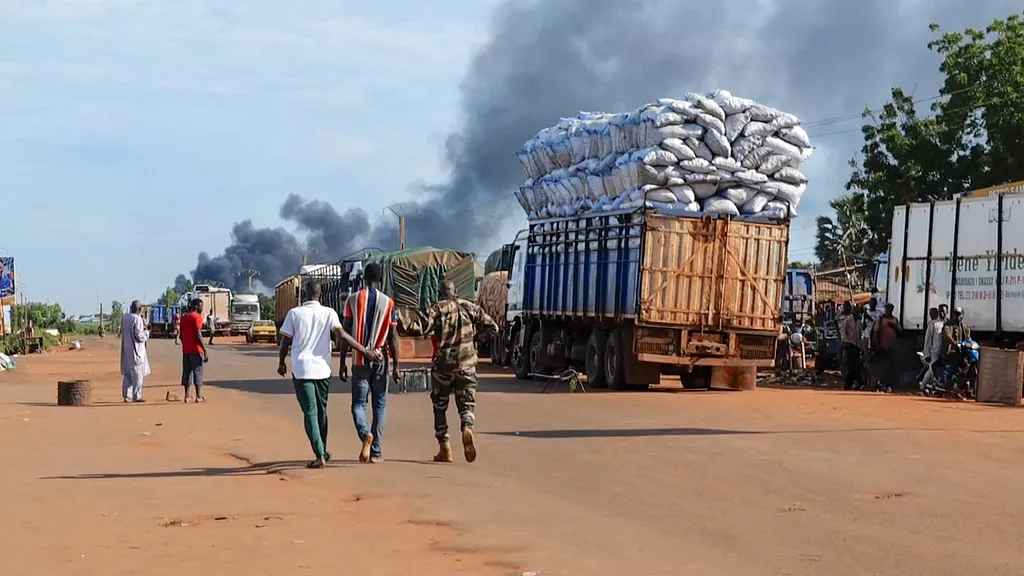Africa
Mali, Niger, and Burkina Faso Investigate French Journalist Over Jihadi Analysis

Authorities in Mali, Niger, and Burkina Faso launch an investigation into a French journalist for alleged involvement in a jihadi analysis. Discover the latest developments in this unfolding international case.
Prosecutors in Mali, Niger, and Burkina Faso initiated investigations on Wednesday, September 25, against French journalist and researcher Wassim Nasr, accusing him of “apology of terrorism” and “complicity” in purported terrorist activities. This action represents a continued effort against Western media.
In a statement to The Associated Press, Nasr denounced the investigations as a form of intimidation and an assault on journalistic integrity.
Nasr, who is affiliated with the French broadcaster France 24, provided an informed analysis of a rare and deadly jihadi attack that occurred in Bamako, Mali’s capital, on September 17. The prosecutors alleged that he had been in communication with the attackers, who purportedly shared their location, objectives, and casualty figures with him in real time.
During a press conference on September 25, Manzo Hadiza, the deputy prosecutor of Niger, claimed that Nasr’s remarks constituted “blatant acts of publicity and support for the terrorists.”
Prosecutors from the terrorism judicial divisions in Mali, Niger, and Burkina Faso released a coordinated statement, which was broadcast on their national television channels late Wednesday.
Nasr, who resides in France, expressed to the AP via WhatsApp that the investigations by the three West African nations are a direct assault on journalism, stating, “They are attempting to intimidate anyone who challenges their narrative regarding security and control.”
He further emphasized the need to support journalists and civil society activists enduring the oppressive regimes of these juntas, noting, “We should all consider those who are surviving under such rule.”
READ ALSO: Burkina Faso Thwarts Attempt to Destabilize Country, Says Security Minister
The Sahel region, encompassing Mali, Niger, and Burkina Faso, presents significant challenges for local journalists, who are increasingly facing security threats, particularly from terrorist groups, as reported by the media freedom organization Reporters Without Borders on Tuesday.
Mali, Niger, and Burkina Faso have been engaged in a prolonged struggle against an insurgency led by armed groups, some of which are affiliated with al-Qaida and the Islamic State. In recent years, following military coups in these nations, the ruling juntas have expelled French military forces and sought assistance from Russian instructors.
Analysts indicate that the security landscape in the Sahel has deteriorated since the juntas assumed control, with a significant increase in attacks and civilian casualties attributed to both Islamic militants and government forces. In the first half of this year alone, the Armed Conflict Location and Event Data Project reported that 3,064 civilians lost their lives due to the violence, marking a 25% rise compared to the preceding six months.
Concurrently, the ruling juntas have intensified their repression of political dissent and media personnel. Earlier this year, Malian authorities prohibited the media from covering the activities of political parties and associations. In Burkina Faso, the BBC and Voice of America radio stations were suspended for their reporting on a mass killing of civilians by the national armed forces. Additionally, Niger’s government ordered the closure of the “Maison de la Presse,” a collective organization representing Niger’s journalists, after it criticized violations of press freedom.
France 24, the employer of Nasr, has also faced suspension in all three countries, particularly due to its reporting on the security situation.
